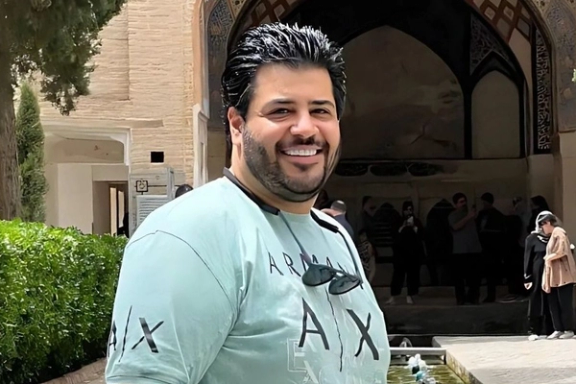Iran executes political prisoner accused of spying for Israel

Iran executed a political prisoner accused of spying for Israel at Ghezel Hesar prison near Tehran on Wednesday.

Iran executed a political prisoner accused of spying for Israel at Ghezel Hesar prison near Tehran on Wednesday.
Mohsen Langarneshin had previously spoken of being coerced into confessing under the threat of torture and harm to his family.
Iran International reported on Monday that Langarneshin had been moved to solitary confinement, signaling the imminent execution.
Langarneshin had been arrested by security forces in Tehran on July 3, 2023 and was initially held at a Ministry of Intelligence safehouse.
He later recounted being threatened with torture on the first night of detention and said he was warned he would be subjected to severe torture unless he confessed.
“In the interrogations, they put me under so much pressure,” Langarneshin said in a voice message from prison. “They said they would arrest every member of my family and keep them until I no longer recognize them.”
He said that he was ultimately forced into making false confessions, including to buying a motorcycle equipped with a camera and transporting explosive materials.
A Revolutionary Court in Tehran accused Langarneshin of spying for Israel and sentenced him to death on charges of “waging war against God” and “spreading corruption on Earth”, according to the judiciary’s media outlet Mizan.
Mizan said Langarneshin had been recruited by Israel's Mossad. The judiciary accused him of “supporting the assassination of a person named Sayyad Khodaei, facilitating attacks on a Defense Ministry-linked industrial site in Isfahan, and handling logistics, equipment, safehouses, and money transfers for Mossad operatives.”
In the past four decades, numerous reports have documented the torture of political detainees in Iran, often leading to severe injury or death. The Islamic Republic has consistently denied responsibility.
Forced confessions have long tainted the Islamic Republic. In March, Iran Human Rights said: "The Islamic Republic has used televised confessions as a propaganda tool aimed at creating fear and justifying the heavy sentences handed down to its political opponents and activists since its inception in 1979."
"Such confessions are extracted after physical and/or psychological torture, lengthy solitary confinement, threats or promises of reduction in the gravity of sentences and threats against family members," according to the rights group.